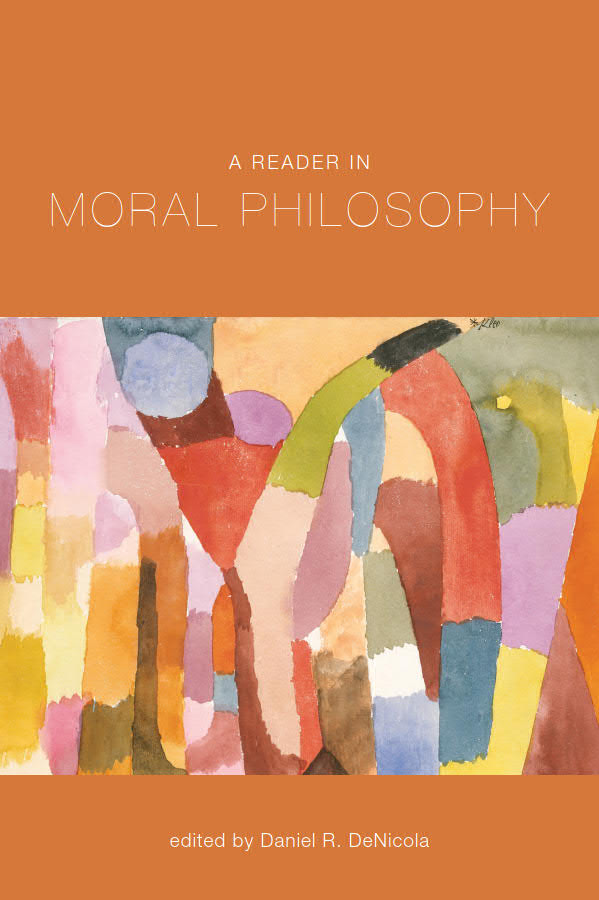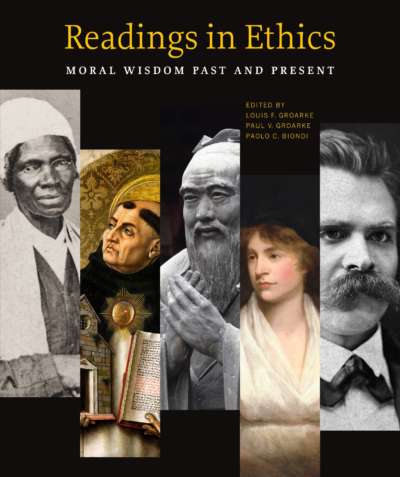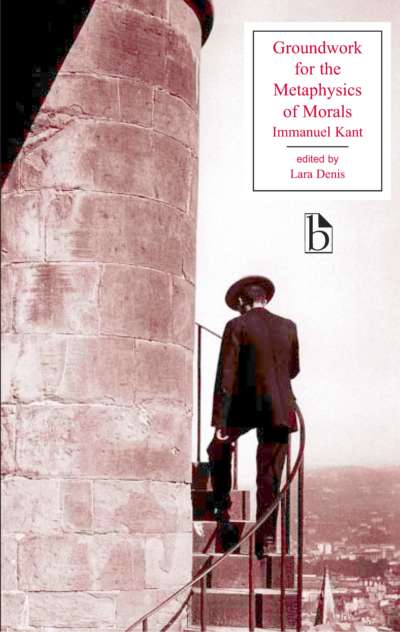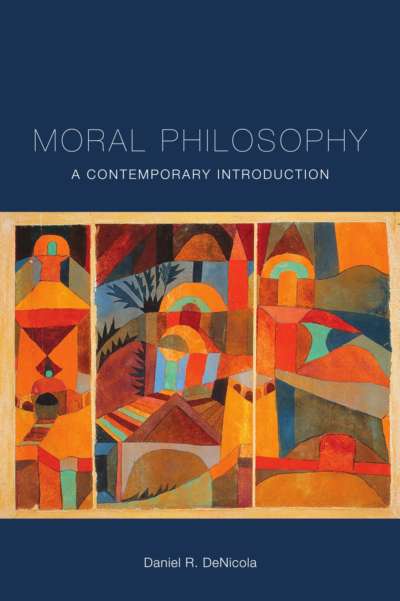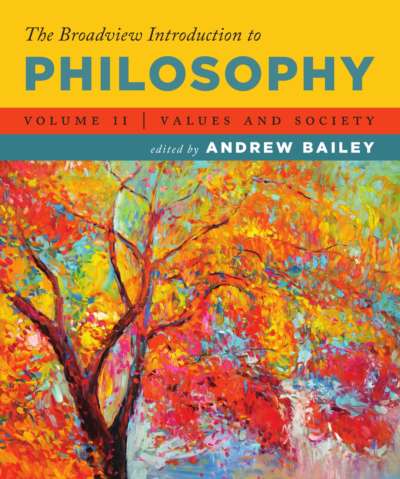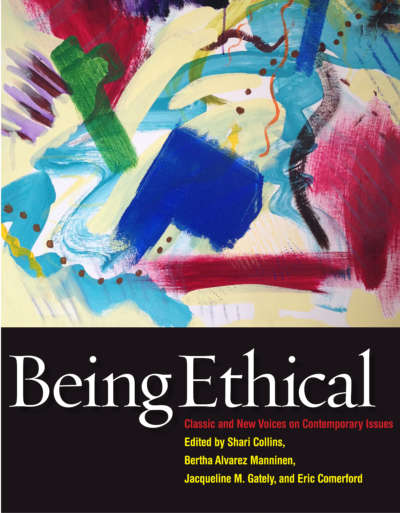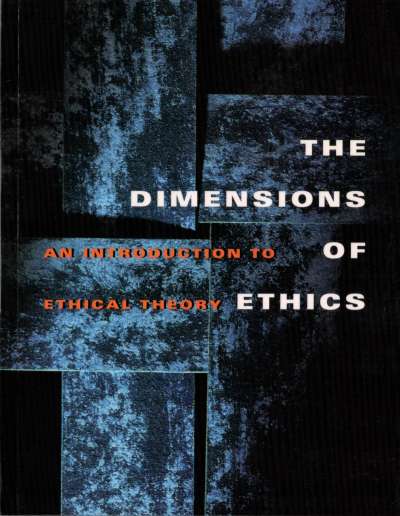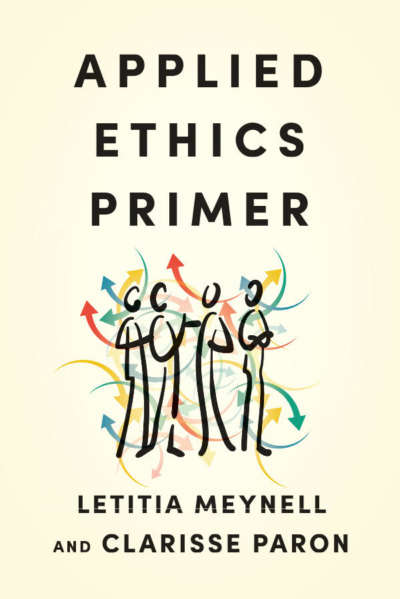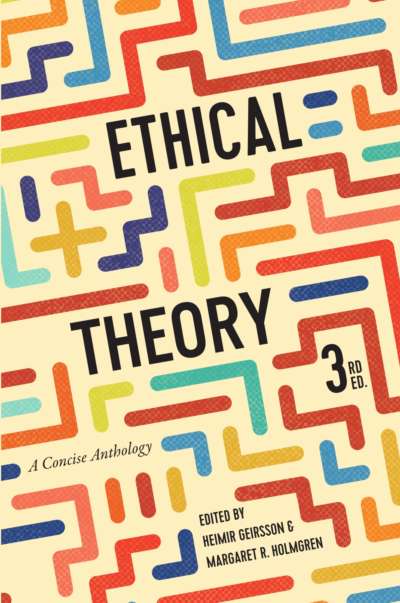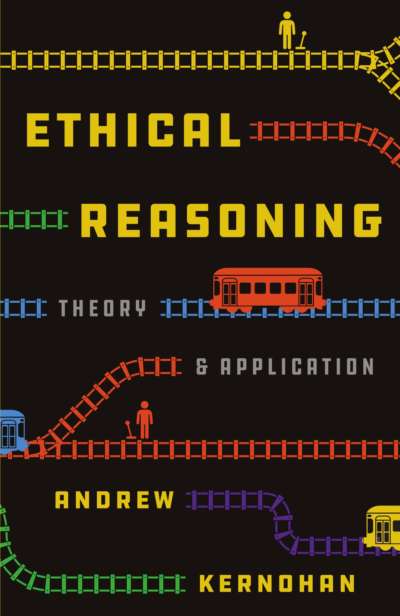This lively anthology provides classic and contemporary defenses and critiques of the central ethical theories, along with readings on a selection of moral issues such as freedom of expression, immigration, and the treatment of non-human animals. Generous excerpts of canonical texts are included alongside contemporary works, all carefully selected and thoughtfully edited for student use. Readings on the ethical theories are organized intuitively, by implicit source of value: god, human nature, culture, reason, consent, character, emotion, care, particulars, and intuitions. The interconnections among readings amplify teaching possibilities and create a vigorous conversation about morality.
A Reader in Moral Philosophy can be used on its own in a package with Moral Philosophy for a discounted price.
Comments
“At a time when many of us are struggling to find readings in moral philosophy that address the root causes of conspiracy theories, misinformation, vaccine hesitancy, and a host of other social ills, Daniel DeNicola has provided us with a wonderful resource. This reader masterfully weaves together classic texts and contemporary pluralistic approaches, and it reconsiders moral problems such as abortion, lying, and immigration, from fresh perspectives. DeNicola’s introductions to each unit provide a helpful taxonomy of positions and nomenclature, helping students to see the varied landscape of moral theories and moral problems.”—Jennifer L. Hansen, St. Lawrence University
“DeNicola’s new reader is an outstanding resource. He gathers together not just the usual suspects but a huge variety of voices across a wide spectrum of positions and topics, including more obscure pieces it would be hard to find on one’s own. Furthermore, the book covers not just classic, eternal topics but also ones that are particularly contemporary. This is a real service to students of ethics, and I am sure the book will be a permanent fixture on many bookshelves.”—Steven D. Hales, Bloomsburg University
“DeNicola has compiled a fantastic set of readings in moral philosophy, covering a wide range of areas and questions. Several of these contributions bring the collection right up to the present day—for example, in debates about ‘fake news,’ hate speech, and immigration. Selections are carefully edited to give students a meaningful but manageable encounter with the original authors. Professors and instructors with very different approaches to modern moral philosophy should find this an excellent resource, and so will their students.”—Garrath Williams, Lancaster University
Preface and Acknowledgments
PART I: ETHICAL THEORY
- 1. Thinking Philosophically about Morality
- Introduction
- 1) Walter Sinnott-Armstrong, “Moral Epistemology and Skepticism”
- 2) Robert B. Louden, “Why We Need Moral Theories”
- 3) John Rawls, “Reflective Equilibrium and Moral Theory”
- 4) Yong Huang, “‘Why Be Moral?’: The Cheng Brothers’ Neo-Confucian Answer”
- 5) Daniel Phillip Verene, “The Problem of the Ring”
- 6) G.E.M. Anscombe, “Who Is Wronged? (A Reply to Philippa Foot)”
- 2. God and Morality
- Introduction
- 1) C. Stephen Evans, “What Is a Divine Command Theory of Obligation?”
- 2) Plato, “Is It Good Because God Loves It, or Does God Love It Because It Is Good?”
- 3) Linda Trinkhaus Zagzebski, “Divine Commands and Divine Motives”
- 4) Immanuel Kant, “The Existence of God as a Postulate of Pure Practical Reason”
- 3. Cultural Relativism and Moral Pluralism
- Introduction
- 1) Maria Baghramian, “Moral Relativism”
- 2) David Wong, “Pluralistic Relativism”
- 3) Susan Moller Okin, “Is Multiculturalism Bad for Women?”
- 4. Human Nature and Morality
- Introduction
- 1) Mencius (Mengzi), “The Seeds of Goodness in Human Nature”
- 2) Philippa Foot, Natural Goodness
- 3) Martha C. Nussbaum, “The Moral Import of Human Capabilities”
- 5. Egoism and Pleasure
- Introduction
- 1) Ayn Rand, “The Celebration of ‘I’”
- 2) Joseph Butler, “Two Sermons on Human Nature”
- 3) Robert Nozick, “The Experience Machine”
- 4) Lynn A. Stout, “Egoism and Altruism”
- 6. Utilitarianism and the Greater Good
- Introduction
- 1) Jeremy Bentham, “Principles of Morals and Legislation”
- 2) John Stuart Mill, Utilitarianism
- 3) Bernard Williams, “Against Utilitarianism”
- 4) Oliver Letwin, “On Mill’s ‘Higher’ and ‘Lower’ Activities”
- 7. Kantianism
- Introduction
- 1) Immanuel Kant, Groundwork for the Metaphysics of Morals
- 2) Barbara Herman, “On the Value of Acting from the Motive of Duty”
- 3) Christine M. Korsgaard, “Kant’s Formula of Universal Law”
- 4) Michael Stocker, “The Schizophrenia of Modern Ethical Theories”
- 8. Morality as Contract
- Introduction
- 1) Thomas Hobbes, “The Social Contract”
- 2) John Locke, “Consent and the Social Contract”
- 3) John Rawls, A Theory of Justice
- 4) David Gauthier, Morals by Agreement
- 5) Heidi M. Hurd, “The Moral Magic of Consent”
- 9. Virtue Ethics and Good Character
- Introduction
- 1) Aristotle, Nicomachean Ethics
- 2) Alasdair MacIntyre, After Virtue
- 3) Rosalind Hursthouse, “Normative Virtue Ethics”
- 4) Mark Alfano, Character as Moral Fiction
- 5) David Foster Wallace, “The Devil Is a Busy Man”
- 10. Moral Sentiment Theory
- Introduction
- 1) David Hume, “Passions, Sentiments, and Morality”
- 2) Adam Smith, The Theory of Moral Sentiments
- 3) Martha C. Nussbaum, “Disgust and Moral Judgments”
- 4) Michael Slote, “Moral Sentimentalism”
- 11. Care Ethics and Feminist Ethics
- Introduction
- 1) Nel Noddings, Caring: A Feminine Approach to Ethics
- 2) Virginia Held, “The Meshing of Care and Justice”
- 3) Marilyn Friedman and Angela Bolte, “Ethics and Feminism”
- 4) Claudia Card, “Women’s Voices and Ethical Ideals”
- 12. Particularism and Intuitionism
- Introduction
- 1) Kwame Anthony Appiah, “The Quandary Quandary”
- 2) Andreas Lind and Johan Brännmark, “Particularism: An Interview with Jonathan Dancy”
- 3) Harriet McBryde Johnson, “Unspeakable Conversations”
- 4) Margaret Urban Walker, “Moral Particularity”
- 5) Jonathan Haidt, “The Intuitive Dog and Its Rational Tail”
- 13. Metaethics
- Introduction
- 1) A.J. Ayer, “Positivism and the Non-Cognitivist View”
- 2) G.E. Moore, “The Irreducibility of Good”
- 3) David O. Brink, “Externalist Moral Realism”
- 4) Francis Snare, “The Empirical Bases of Moral Scepticism”
- 5) Mary Midgley, Can’t We Make Moral Judgements?
- 14. The Limits of Morality and Moral Theory
- Introduction
- 1) Shelly Kagan, “Ordinary and Extraordinary Morality”
- 2) Susan Wolf, “Moral Saints”
- 3) Todd May, A Decent Life
- 4) Daniel R. DeNicola, “Supererogation: Artistry in Conduct”
- 5) Raimond Gaita, “Goodness beyond Virtue”
PART II: ETHICS IN PRACTICE
- 15. Abortion
- Introduction
- 1) Don Marquis, “An Argument that Abortion Is Wrong”
- 2) Judith Jarvis Thomson, “A Defense of Abortion”
- 3) Rosalind Hursthouse, “A Virtue Theory of Abortion”
- 16. Animals, Humans, and Moral Standing
- Introduction
- 1) Mary Midgley, “Getting Animals in Focus”
- 2) Peter Singer, “All Animals Are Equal”
- 3) Carl Cohen, “The Case for the Use of Animals in Biomedical Research”
- 4) Andrew Brennan, “Speciesism and Humanism”
- 17. Ethics and the Environment
- Introduction
- 1) Paul W. Taylor, “The Ethics of Respect for Nature”
- 2) Onora O’Neill, “Environmental Values, Anthropocentrism and Speciesism”
- 3) John Broome, “The Ethics of Climate Change”
- 18. Lying
- Introduction
- 1) Immanuel Kant, “On a Supposed Right to Lie from Altruistic Motives”
- 2) Christine M. Korsgaard, “The Right to Lie: Kant on Dealing with Evil”
- 3) David Nyberg, “Deception and Moral Decency”
- 4) Alison MacKenzie and Ibrar Bhatt, “Opposing the Power of Lies, Bullshit and Fake News: The Value of Truth”
- 19. Freedom of Expression and Offense
- Introduction
- 1) John Stuart Mill, “Of the Liberty of Thought and Discussion”
- 2) Jeremy Waldron, “The Harm in Hate Speech”
- 3) Greg Lukianoff and Jonathan Haidt, “The Coddling of the American Mind”
- 4) Cheshire Calhoun, “The Virtue of Civility”
- 20. Immigration
- Introduction
- 1) Christopher Heath Wellman, “Immigration and Freedom of Association”
- 2) Antoine Pécoud and Paul de Guchteneire, “Is Immigration a Right?”
- 3) Seyla Benhabib, “The Morality of Migration”
- 4) Mathias Risse, “On the Morality of Immigration”
- 5) Javier Hidalgo, “Resistance to Unjust Immigration Restrictions”
Permissions Acknowledgments
Daniel R. DeNicola is Professor Emeritus of Philosophy and former Provost at Gettysburg College. He is the author of Moral Philosophy: A Contemporary Introduction, as well as Learning to Flourish: A Philosophical Exploration of Liberal Education, and Understanding Ignorance: The Surprising Impact of What We Don’t Know, winner of the 2018 PROSE Award in Philosophy.

